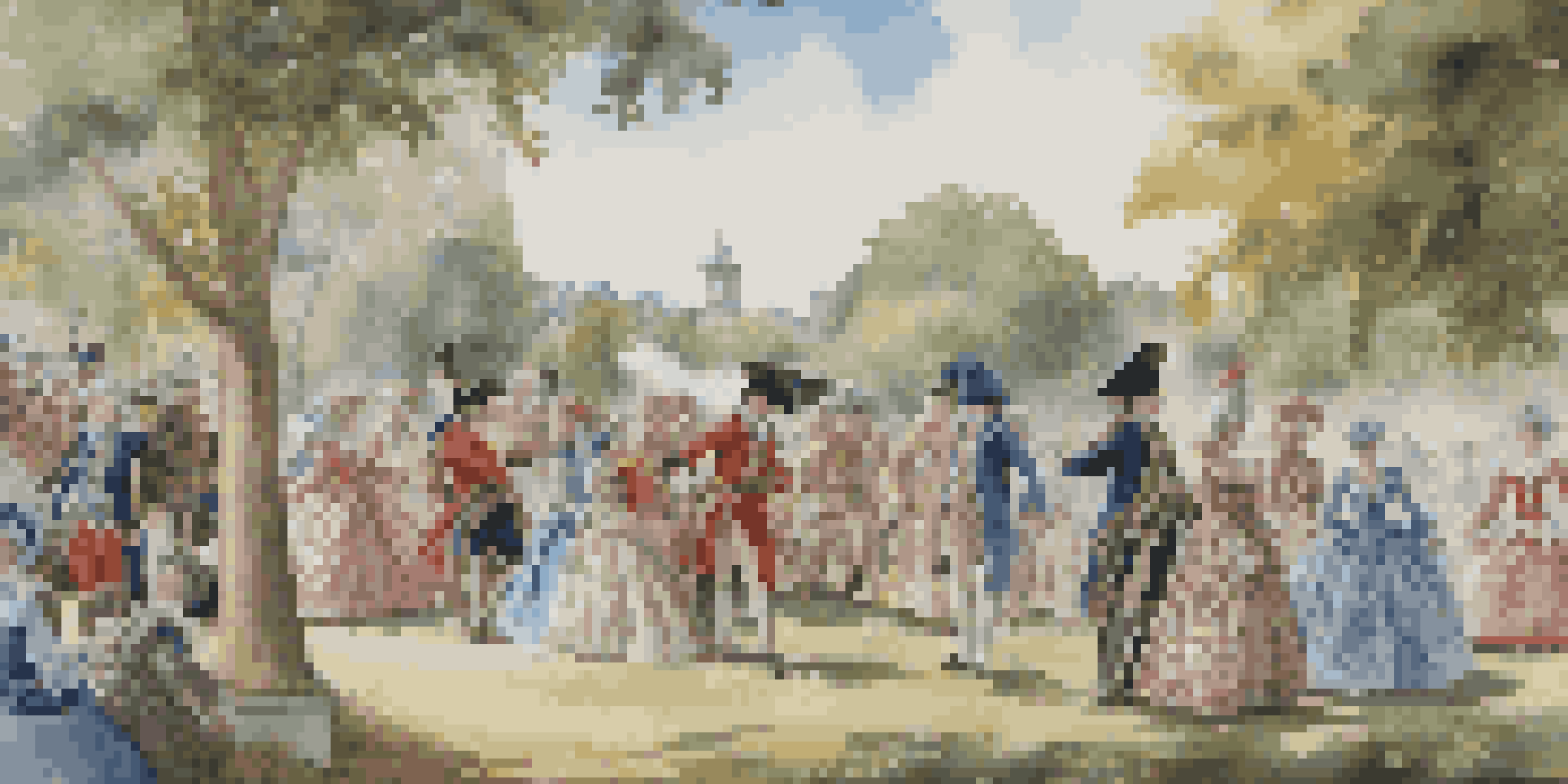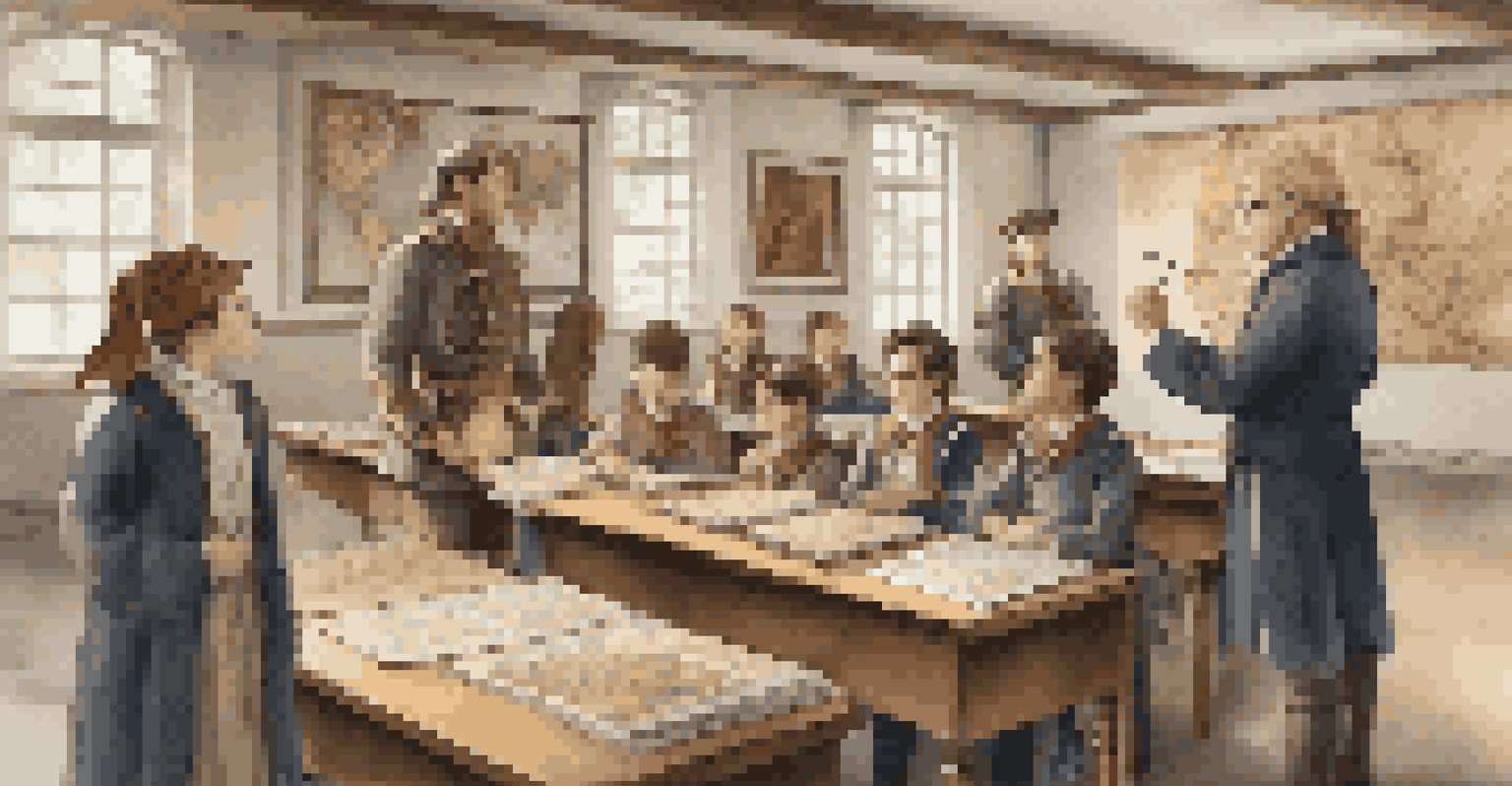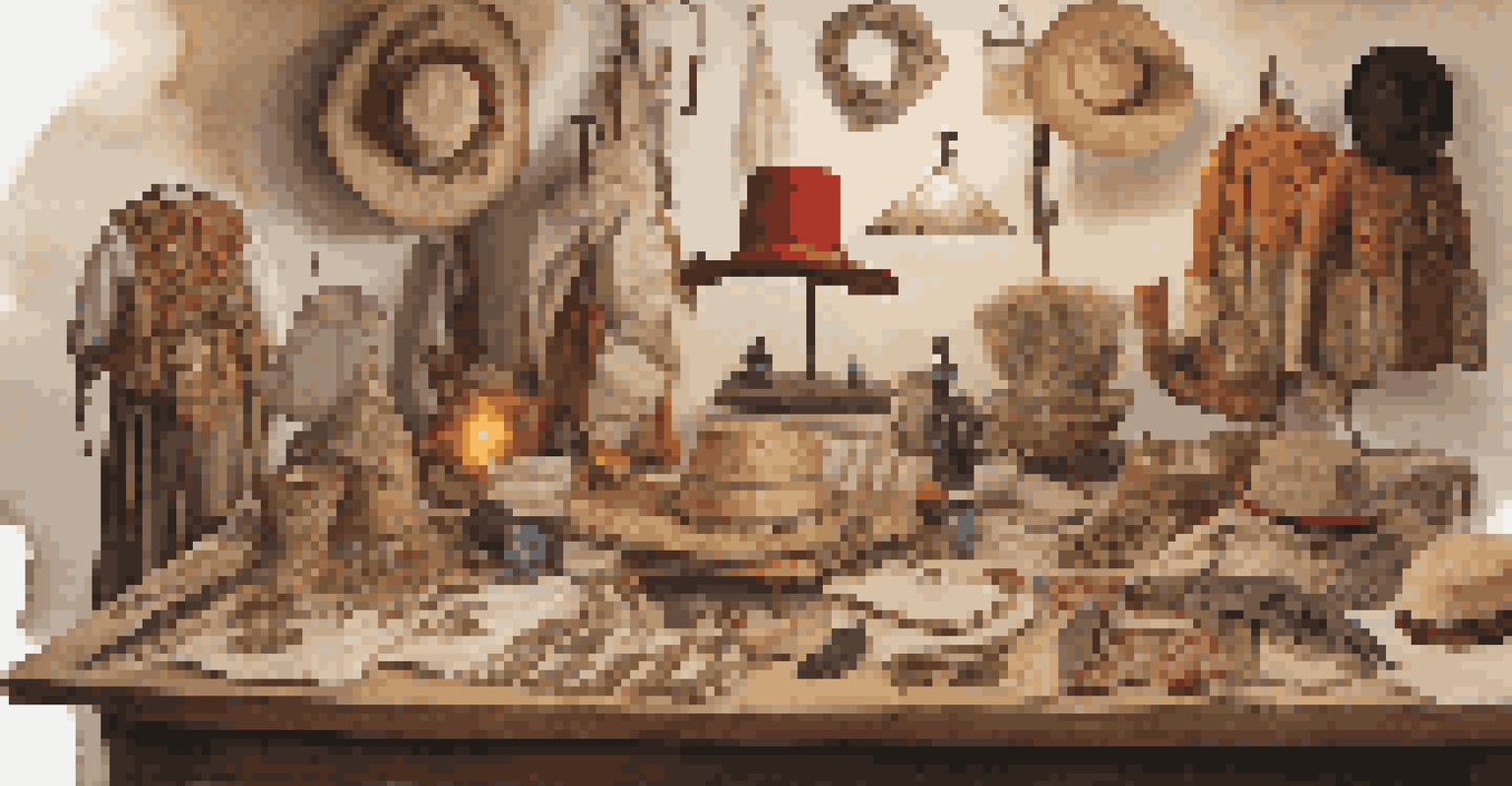From Hobby to Profession: Career Paths in Reenactment

The Allure of Reenactment: A Growing Passion
Reenactment is more than just a hobby; it's a vibrant community where history comes alive. Many enthusiasts find immense joy in embodying characters from the past, often participating in events that transport them and their audiences to different eras. This captivating experience can be a powerful catalyst for transforming a casual interest into a serious pursuit.
History is not a burden on the memory but an illumination of the soul.
As people engage in reenactment, they gain not only knowledge but also skills in research, performance, and teamwork. These elements contribute to a deeper appreciation of history and culture, making the experience both educational and entertaining. It’s this unique blend that often sparks the desire to explore reenactment as a career path.
Ultimately, the allure of reenactment lies in its ability to connect individuals to history in a personal way, fostering a community of passionate advocates. For many, this connection serves as the foundation for a career that allows them to share their love for the past with others.
Skills Developed Through Reenactment
Engaging in reenactment hones a variety of skills that are valuable in many professional fields. Participants often develop public speaking abilities, as they share stories and historical facts with audiences. This can be particularly beneficial in careers related to education, tourism, and even sales.

Additionally, reenactors learn the art of research, diving into historical texts and primary sources to ensure authenticity in their portrayals. This skill is transferable to careers in academia, historical preservation, and publishing. The ability to analyze and present information clearly is vital in today's information-driven world.
Reenactment Creates Career Paths
Engaging in reenactment opens up various career opportunities, from historical consulting to teaching, allowing enthusiasts to turn their passion into a profession.
Lastly, teamwork and collaboration are essential components of reenactment. Participants work closely with one another to create immersive experiences, which fosters strong communication skills. These attributes are highly sought after in many careers, particularly those that require collaboration across diverse teams.
Career Opportunities in Historical Consulting
One of the most direct career paths stemming from reenactment is historical consulting. Professionals in this field offer expertise to filmmakers, museums, and educational institutions, ensuring accuracy in the portrayal of history. This role allows reenactors to leverage their passion and knowledge in a way that impacts public understanding of the past.
The more you know about the past, the better prepared you are for the future.
Historical consultants might work on everything from documentaries to theatrical productions, providing insights that enhance authenticity. Their ability to analyze narratives and suggest historically accurate details makes them invaluable assets in creative projects. This is where the skills honed in reenactment truly shine.
Moreover, the demand for authentic historical content continues to grow in the entertainment industry. As audiences increasingly seek genuine representations of history, the role of historical consultants becomes more prominent, offering reenactors a viable career option.
Teaching History Through Reenactment
Another exciting career path is teaching history through reenactment. Educators who incorporate reenactment into their curriculum can create engaging learning experiences for students. This innovative approach not only makes history more relatable but also encourages students to think critically about the past.
Teachers can lead reenactment workshops or organize historical simulations that allow students to step into the shoes of historical figures. This interactive learning method enhances retention and fosters a passion for history among learners. It also provides educators with an opportunity to inspire the next generation of history enthusiasts.
Skill Development Through Reenactment
Participants in reenactment develop valuable skills such as public speaking, research, and teamwork, which are applicable across many professional fields.
By blending traditional teaching methods with experiential learning, educators can effectively reach diverse learning styles. This makes the teaching of history not only more enjoyable but also more impactful, paving the way for a fulfilling career in education.
Event Coordination and Management in Reenactment
For those with a knack for organization and logistics, event coordination in the reenactment space can be a rewarding career. This role involves planning, organizing, and executing historical events, such as battle reenactments or living history festivals. Strong project management skills are crucial for ensuring that every detail is meticulously handled.
Event coordinators are responsible for everything from securing locations to managing participant registrations. Their work ensures that events run smoothly and that participants and audiences alike have a memorable experience. This behind-the-scenes role is vital for bringing reenactment events to life.
As interest in historical events grows, so does the need for skilled coordinators who can manage these experiences effectively. This career path not only allows individuals to immerse themselves in history but also to contribute to the growth of the reenactment community.
Costuming and Craftsmanship: A Niche Career
Costuming plays a pivotal role in reenactment, and for those with a flair for design, this can lead to a fulfilling career. Crafting historically accurate costumes requires a blend of creativity, historical knowledge, and sewing skills. Many reenactors who excel in this area find opportunities to create pieces for others or even start their own costume businesses.
In addition to costuming, there is also a demand for artisans who specialize in creating props and accessories that enhance reenactment experiences. From weapons to everyday items of the era, these craftsmen contribute to the authenticity of events. This niche allows individuals to merge their passion for history with their artistic talents.
Digital Platforms Expand Reach
The rise of online platforms enables reenactors to share their passion globally, creating opportunities for content creation and community engagement.
As the popularity of reenactment continues to rise, so does the market for professional costumers and craftsmen. This presents a unique opportunity for those looking to turn their hobby into a business that celebrates history through art.
Online Platforms and Content Creation in Reenactment
With the rise of digital media, many reenactors are finding success by sharing their passion online. Content creation through blogs, YouTube channels, and social media has become a popular way to engage with audiences and share historical insights. This avenue not only allows reenactors to showcase their knowledge but also to connect with like-minded individuals worldwide.
Online platforms provide opportunities for monetization, whether through sponsorships, merchandise sales, or crowdfunding. Creators can build a brand around their passion for history, turning a hobby into a sustainable career. This shift to digital also allows for greater flexibility and creativity in how history is presented.

Moreover, the internet fosters community among reenactors, providing a space for collaboration and sharing resources. This interconnectedness helps to elevate the reenactment movement, creating a vibrant ecosystem where enthusiasts can thrive.
Conclusion: Embrace Your Passion for a Rewarding Career
Transitioning from a hobby to a profession in reenactment can be both exciting and rewarding. With various career paths ranging from historical consulting to online content creation, there are ample opportunities for passionate individuals to share their love for history. Each path offers unique experiences and challenges, allowing enthusiasts to carve out a niche that resonates with their skills and interests.
As the reenactment community continues to grow, so does the demand for professionals who can bring history to life in engaging ways. By embracing your passion and pursuing a career in this field, you not only fulfill your own dreams but also contribute to a greater appreciation of history within society.
So, if you find joy in reenacting the past, consider how you can turn that passion into a fulfilling career. The journey may be as exciting as the events you portray, opening doors to new experiences and connections along the way.